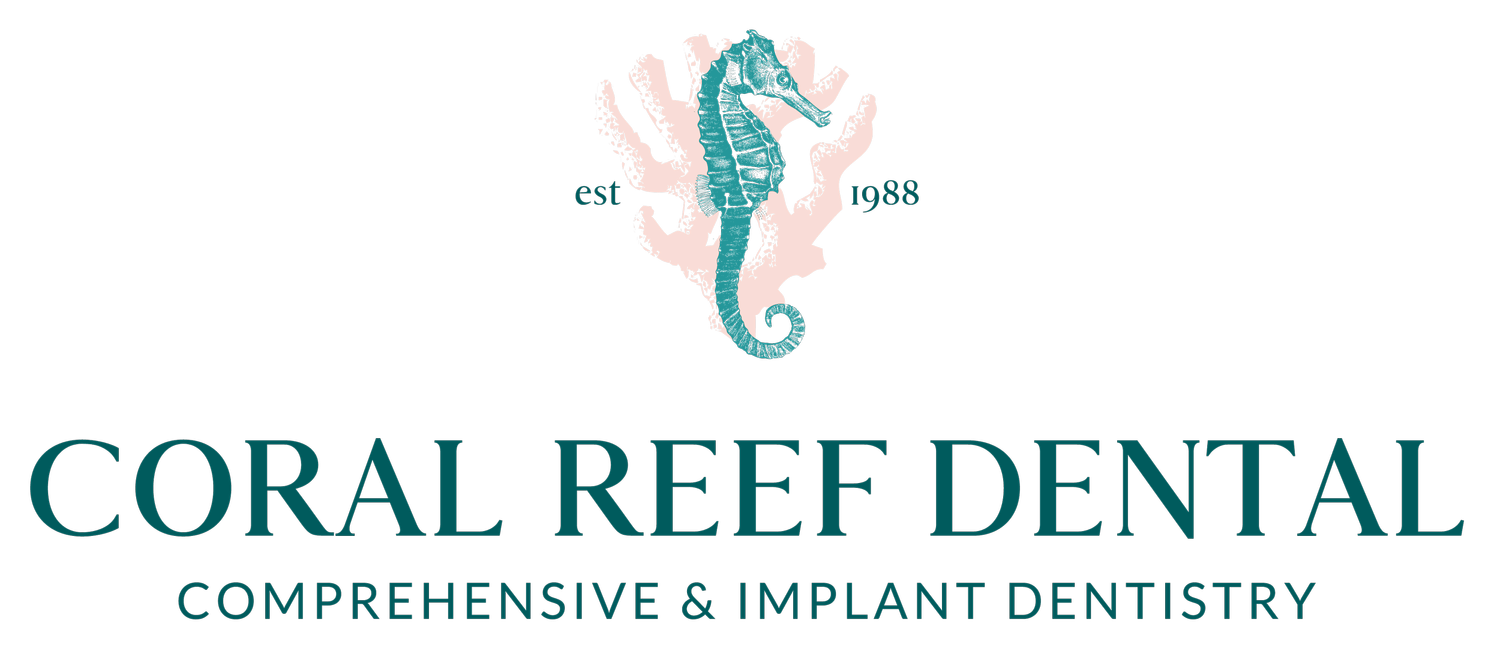How To Care For Dentures
People who are missing a number of teeth on their top or bottom gums might consider dentures to create the appearance of a complete set. But it’s essential to properly care for these devices to keep them in great condition.
If you’ve wondered how to maintain your dental appliances, you're in the right place! Join us as we discuss how to clean and care for your dentures for a happy, healthy smile.
What are dentures?
Dentures are prosthetic devices that can replace missing teeth. They’re made of various materials, including acrylic, metal, and porcelain. Here’s a closer look at these items and how they work:
What kinds of dentures are there?
Complete dentures feature a full set of teeth for the top and bottom bridges of your mouth. They’re used when no natural teeth remain and attach to the gum line and roof of the mouth. Folks who still have some of their teeth might opt for partial dentures. There are many different types that feature metal or acrylic clasps that attach to existing teeth to hold them in place.
Who needs dentures?
As we age, issues like periodontal disease can affect our teeth. It’s common for teeth to become loose and fall out over time. But regardless of age, anyone missing multiple teeth on a single row can be a good candidate for dentures. Ask your dentist if dentures could be a good solution for you.
How do you properly clean dentures?
When cleaning your dentures, start by spreading a soft towel on your bathroom counter or in your sink to protect your dental device if it’s dropped. Then, rinse your dentures with warm water and brush them with a gentle brush. You can find special soft-bristled toothbrushes made specifically for dentures that minimize the risk of scratches and other damage.
Once you’ve thoroughly cleaned the entire surface, give them a final rinse. You should do this at least once a day, but twice daily is best.
Make this part of your bedtime routine, along with brushing your gums, cheeks, tongue, and remaining natural teeth with a toothbrush and regular toothpaste for optimal oral health. Be sure to soak your dentures overnight in water or a specialized denture cleaning solution to avoid warping.
Denture maintenance tips
With proper care, your dentures can last between seven and ten years. Here are our top tips to keep them in good shape:
Remove dentures after every meal
Food particles can become trapped between your dentures and gums, creating the perfect environment for bacterial growth. This can lead to bad breath and even alter your sense of taste over time. Whenever you finish eating, rinse your dentures and mouth with water before putting them back in.
Don’t use bleach to whiten your dentures
On the surface, bleach might seem like a good option for cleaning your dentures, but that isn’t the case. In fact, products containing bleach can weaken and discolor your dentures. Instead, use gentle solutions made specifically for dentures.
Avoid sleeping with your dentures on
At the end of a long day, it can be tempting to leave your dentures in, but you’ll be doing more harm than good. First, sleeping in your dentures can encourage harmful bacteria to grow in your mouth. Extended wear time can also increase gum inflammation and cause your dentures to fit more loosely over time. Additionally, sleeping with your dentures in can promote bone loss, which you’ll certainly want to avoid.
Hot water should not be mixed with dentures
Many people might be tempted to use hot or boiling water to clean their dentures. However, this won’t achieve the goal you’re going for. Hot water can cause warping either immediately or over time.
So, the best thing to use is a dedicated denture cleaner to soak your device in overnight. These solutions are gentle enough for delicate dentures but provide cleaning power to keep them sparkling. Just be sure to rinse them in fresh water before putting them back in.
Keep in contact with your dentist if soreness develops
Soreness and irritation can be a sign that your dentures need to be realigned for a proper fit. Of course, new dentures can cause some discomfort as you adjust to a new device in your mouth.
However, if your once-comfortable dentures are suddenly rubbing in all the wrong places, it’s time to visit your dentist. If not addressed, dental sores can get infected and become a more serious issue.
Call your dentist if your dentures break
Most dentures won’t last forever, and you’ll want a replacement right away if yours break. After all, cracks and other signs of damage can harbor bacteria. Even if they still fit comfortably in your mouth, it isn’t safe to wear them if you can’t effectively clean them.
Contact Coral Reef Dental for dentures and denture care!
From dentures to implants and cleanings to fillings, Coral Reef Dental is here to help with all your oral health needs! Contact us today to schedule your appointment or find out more about how we can serve you.


